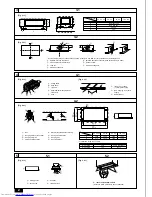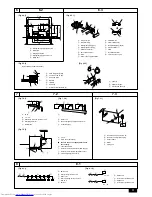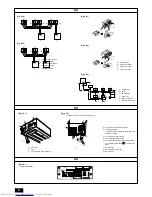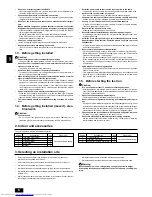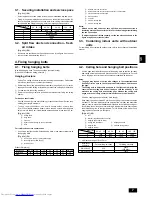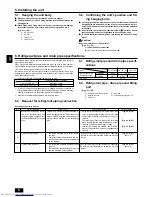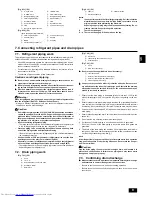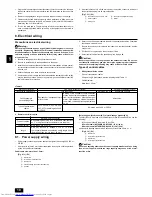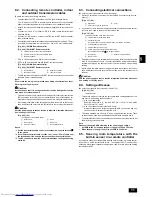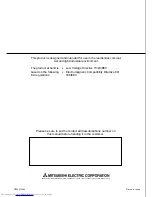
3
6
6.3
[Fig. 6.2.1]
[Fig. 6.3.1]
6.2
7
7.2
[Fig. 7.2.1]
[Fig. 7.2.2]
[Fig. 7.3.1]
[Fig. 8.1.1]
[Fig. 8.1.2]
38
350
70
476
20
20
630
60
60
C
550
606
70
178
192
338-353
8
290
3-18
45
135
52
B
D
A
E
A
Refrigerant pipe (liquid pipe): HP
B
Drain pipe
C
Hanging bolt pitch
D
Refrigerant pipe (gas pipe): LP
E
Filling port
A
H
C
D
G
E
*1
F
B
J
I
M
N
L
K
O
A
“0-0 gas” mark
B
“INNER” mark
C
“OUTER” mark
D
Flare insulation (2)
E
Refrigerant piping (gas)
F
Refrigerant piping (liquid)
G
Field refrigerant piping
H
Pipe insulation (1)
I
Insulation material
J
Flare
K
Pull in this direction.
L
Insulation material
M
Flare
N
There must be no gap.
O
Move to the original position.
[Fig. 6.3.2]
C
B
A
D
E
F
G
*2
20
20
20
20
C
B
A
*3
*4
A
Field refrigerant piping
B
There must be no gap.
C
Unit body plate
D
OUTER
E
INNER
F
Unit body
G
Provided flare insulation (2)
A
Tape (3)
B
Fasten with tape.
C
Provided tie band (4)
(figure showing the flare insulation)
D
I
C
H
G
K
I
J
3
C: 30 cm
G
Drain hose (Accessory)
s
s
s
s
s
Be sure to use the supplied drain hose
(Accessory).
H
Less than 300 mm
I
Hard vinyl chloride 90° elbow (field supply)
J
Hard vinyl chloride (VP-25) (field supply)
K
Tie band (small) (Accessory)
D
D
D
E
F
2
D
Indoor unit
E
Take as large as possible. About 10 cm
F
Collected pipes
A
C
B
A
B
1
A: 25 cm
B: 1.5 – 2 m
A
Downward pitch of more than 1/100
B
Insulating material
C
Metal brace
D
C
E
B
A
A
Insert the pump’s end 2 to 4 cm.
B
Remove the polyethylene plug.
C
About 1000 cc
D
Water
E
Filling port
E
F
C
20 ~ 80
G
H
C
100 · 125
E
Switch 16 A
F
Overcurrent protection 16 A
G
Switch 16 A
H
Overcurrent protection 16 A
A
B
D
E
C
C
C
C
C
C
C
A
Switch 16 A
B
Overcurrent protection 16 A
C
Indoor unit
D
Total operating current be less
than 16 A
E
Pull box
[Fig. 7.2.3]
7.3
8
8.1
[Fig. 6.3.3]


